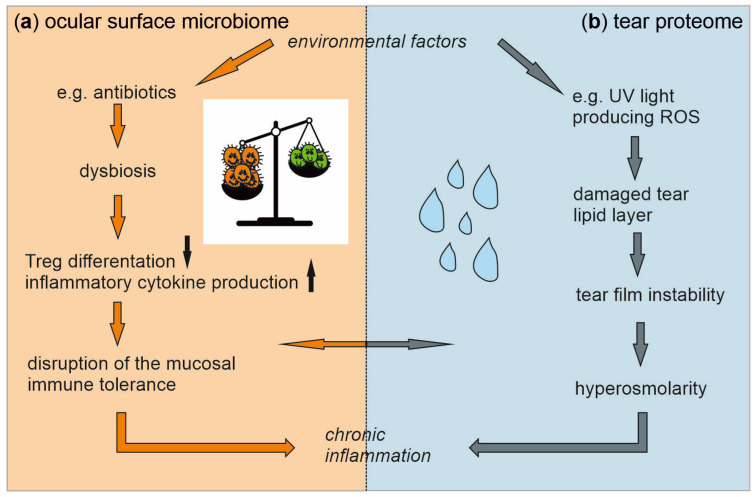Figure 2.
An imbalance in the ocular surface microbiome and the tear proteome, triggered by environmental factors, contributes to dry eye disease (DED) by inducing inflammatory processes. Antibiotics promote an imbalanced state in the ocular surface microbiome. This dysbiosis disrupts mucosal immune tolerance via enhanced inflammatory cytokine production and decreased regulatory T cell (Treg) differentiation, ultimately resulting in inflammation (a). Reactive oxygen species (ROS) damage the tear lipid layer, leading to tear film instability and increased osmolarity that induces inflammation (b). The induced chronic inflammatory processes are probably a key component in the pathogenesis of DED. Associations between the two systems, i.e., potential interactions between the ocular surface microbiome and the tear proteome in DED, have not been investigated so far and are the subject of this study.

